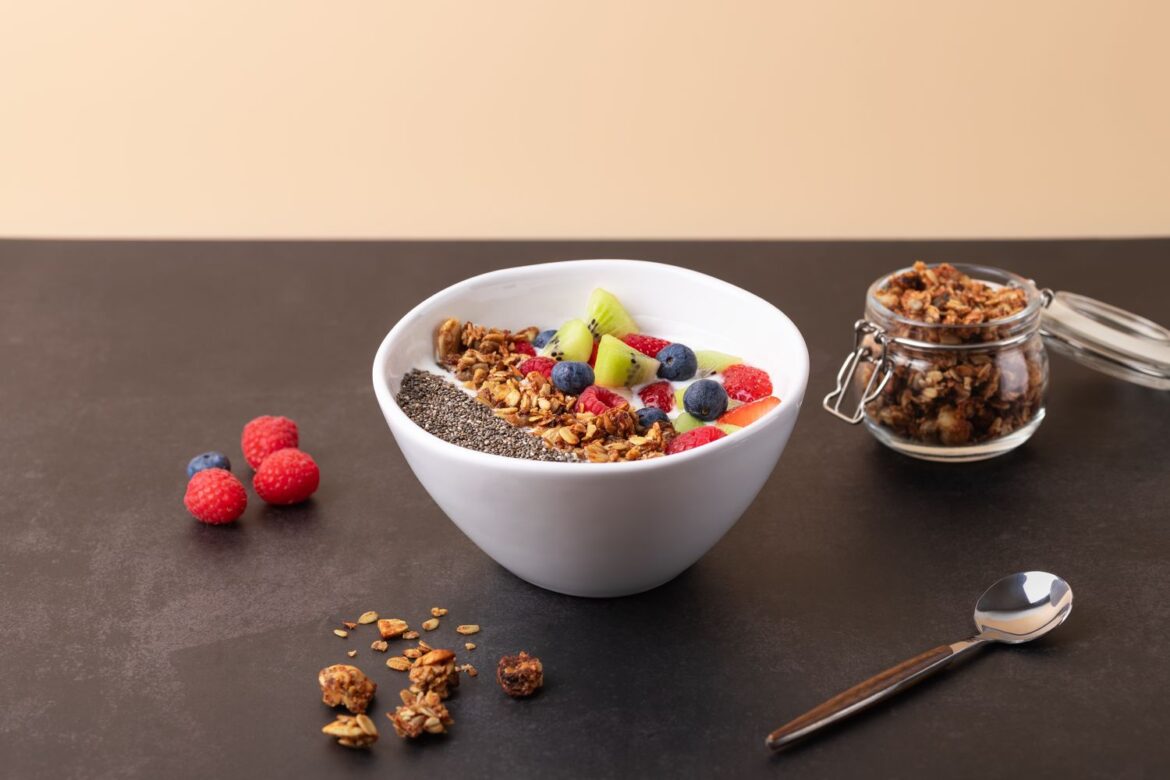Key Takeaways
A new study found that kefir combined with prebiotic fiber, known as a synbiotic, reduced inflammation more effectively than omega-3 or prebiotic supplements alone.The kefir-based synbiotic may boost production of butyrate, a compound that supports gut immunity and helps lower inflammation.Experts say synbiotics can be done through food pairings like yogurt with fruit or kimchi with rice.
Many people take omega-3 supplements to reduce inflammation, but a new study suggests that combining prebiotic fiber and kefir may offer greater anti-inflammatory benefits.
Prebiotic Fiber and Kefir May Reduce Inflammation
In the study, researchers compared three supplements: a synbiotic supplement (a mix of prebiotics and probiotics), an omega-3 supplement, and a prebiotic plant fiber. Chucking Goat Ltd, a U.K.-based gut health and kefir company, helped fund the study and provided the synbiotic supplements.
All three supplements were linked to reduced inflammation, but the kefir-based synbiotic had the strongest impact. This is likely because the supplement delivers both good microbes and the fibers that feed them, according to Amrita Vijay, PhD, lead author of the study and a senior researcher at the University of Nottingham.
This combination boosts production of butyrate, a short-chain fatty acid that supports gut immunity and helps lower inflammation, Vijay said.
What Are the Benefits of Synbiotic Supplements?
In addition to lowering inflammation, previous studies have linked synbiotics with improved gut health, immunity, and weight loss in some people.
Synbiotics might be an easy way to get both healthy gut microbes and the food they need to survive, but there are plenty of unknowns about these combination supplements.
“We’re still learning a lot about synbiotics, including which types, doses, and timing are most effective and for whom,” Ashlee Carnahan, MS, RDN, CLC, manager of nutrition and education services and dietetic internship director at Henry Ford Health in Detroit, told Verywell in an email.
It’s a good idea to speak with a healthcare provider before trying a synbiotic, especially if you have a chronic condition or a weakened immune system, Carnahan added.
Add Synbiotic Food Sources to Your Diet
There are synbiotic food pairings that don’t involve pills or powders.
“Some combinations would be yogurt, which is your probiotic, with bananas or berries, which give you prebiotics. Or kimchi, which is your probiotic, with stir-fried vegetables and rice for your prebiotic,” Vanessa King, MS, RDN, CNSC, a registered dietitian and spokesperson for the Academy of Nutrition and Dietetics based in Los Angeles, California, told Verywell.
However, you don’t need to stress too much about making the perfect synbiotic food pairing. You will likely hit the targets you need if you eat a wide variety of flavorful foods, King added.
Are Synbiotics Really Better Than Omega-3s?
If you want to add synbiotics to your diet, don’t cut out omega-3s. The new study linked synbiotics with a stronger anti-inflammatory effect, but omega-3 fatty acids still had an anti-inflammatory effect and offer other benefits for brain and heart health.
“Even though the study shows that it wasn’t as effective for this particular activity in the body, omega-3s are critical to our health. They’re an essential nutrient that we need to get from our food, because our body can’t make it,” King said.
The study focused on supplements, but evidence has shown that omega-3s food sources, like fatty fish, provide more health benefits than supplements. For maximum benefits, find ways to add probiotics, prebiotics, and omega-3s into your diet.
“One of my favorite breakfast combos is omega-3 eggs mixed with avocados, your prebiotic, and sauerkraut as your probiotic. And that is just divine, and really will deliver that anti-inflammatory power,” King said.
Verywell Health uses only high-quality sources, including peer-reviewed studies, to support the facts within our articles. Read our editorial process to learn more about how we fact-check and keep our content accurate, reliable, and trustworthy.
Vijay A, Simpson L, Tooley M, et al. The anti-inflammatory effects of three different dietary supplement interventions. J Transl Med. 2025;23(1):1081. doi:10.1186/s12967-025-07167-x
Farag MA, Jomaa SA, Abd El-Wahed A, R. El-Seedi H. The many faces of kefir fermented dairy products: quality characteristics, flavour chemistry, nutritional value, health benefits, and safety. Nutrients. 2020;12(2):346. doi:10.3390/nu12020346
Recharla N, Geesala R, Shi XZ. Gut microbial metabolite butyrate and its therapeutic role in inflammatory bowel disease: a literature review. Nutrients. 2023;15(10):2275. doi:10.3390/nu15102275
Siddiqui MT, Cresci GAM. The immunomodulatory functions of butyrate. J Inflamm Res. 2021;14:6025-6041. doi:10.2147/JIR.S300989
Liu N, Wang X, Wang M. The effect of pre/pro/synbiotics on cardiometabolic health in patients with polycystic ovary syndrome: a systematic review, meta-analysis and meta-evidence. J Funct Foods. 2025;133:106996. doi:10.1016/j.jff.2025.106996
Al-Habsi N, Al-Khalili M, Haque SA, Elias M, Olqi NA, Al Uraimi T. Health benefits of prebiotics, probiotics, synbiotics, and postbiotics. Nutrients. 2024;16(22):3955. doi:10.3390/nu16223955
MedlinePlus. Omega-3 fats – good for your heart.
National Center for Complementary and Integrative Health. Omega-3 supplements: what you need to know.

Thanks for your feedback!
What is your feedback?
Helpful
Report an Error
Other


Dining and Cooking